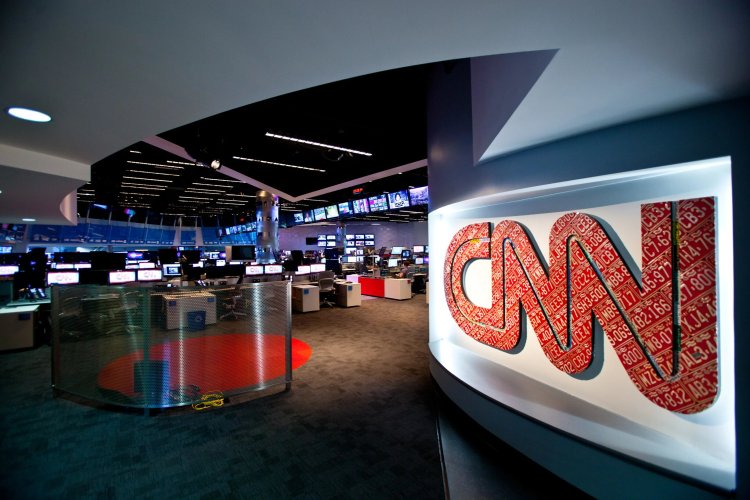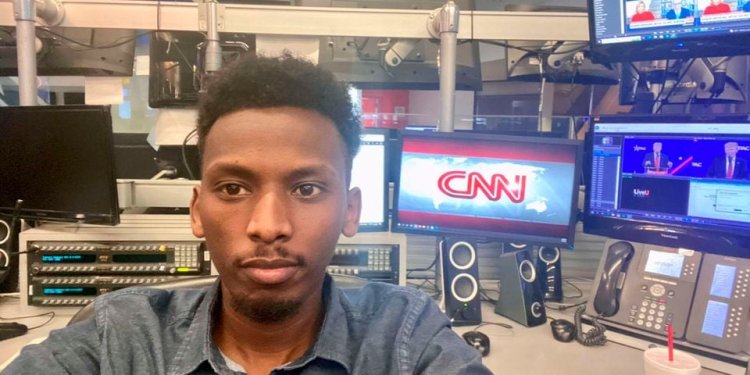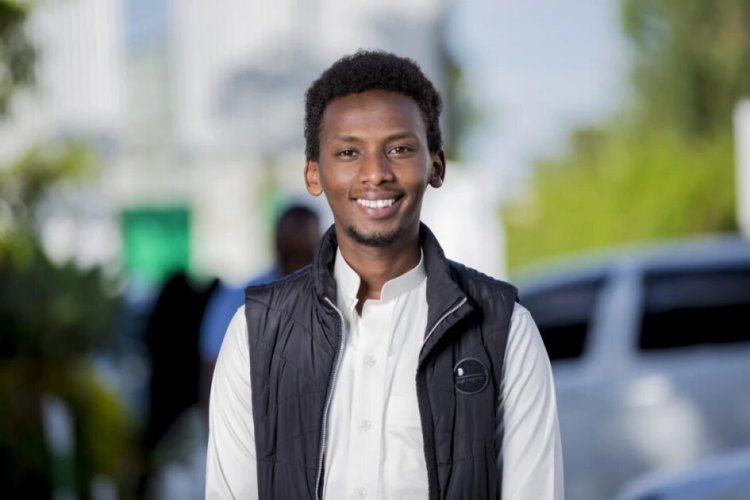How Kenyan Journalist Lost CNN Job Over 10-Yr-Old World Cup Tweets
Idris Muktar Ibrahim rose from the informal settlements of Korogocho in Nairobi to work as a producer with CNN International

A Kenyan journalist based in the United States (US) revealed on Saturday, December 24 how two tweets he posted during the 2014 FIFA World Cup final between Germany and Argentina led to his termination from his dream job in November.
Idris Muktar Ibrahim rose from the informal settlements of Korogocho in Nairobi to work as a producer with CNN International, based in the network’s headquarters in Atlanta, where he was handling news stories from around the world.
During the highly-anticipated final, he was seated in a poorly lit movie theatre in a slum area, surrounded by excited and rowdy crowds eagerly awaiting the start of the final, which Germany won 1-0 after extra time.
"As the kick-off time approached, I checked my phone and saw that Twitter was filled with enthusiastic soccer fans, both for and against Germany, sharing their thoughts and using hashtags like #TeamGermany and #TeamHitler to show their support. So I joined in and tweeted my support for Germany.

Kenyan-born TV producer Idris Muktar at the CNN studios in Atlanta where he worked for a year until two tweets he authored10 years ago, while a young man in Korogocho, surfaced online and cost him his job. /DAILY NATION
"10 years later, while working for CNN International in the United States, this tweet would cost me my job and all the hard work and dedication I had put into achieving my dream career," he revealed to the Saturday Nation.
He added that at the time he posted the statements, he was just a teenager bursting under the shadow of a continent often left out in cultural warfare and playing catch up with Western inventions.
A decade later, he was reduced to a tweet and labelled an anti-semite and supporter of the terrorist organisation, Hamas; terms that he only covered in his pieces or while producing a television package for the international broadcaster.
"But I am more than a tweet. I produced for all the prominent correspondents on your screen and covered stories from South America to Ukraine, Africa to the Middle East," he added.
Ibrahim broke through the odds of growing up in the impoverished neighbourhood of Korogocho, where his family lived in a cramped and poorly constructed dwelling with a roof made of dilapidated metal sheets.
His mother was originally from Ethiopia, while his father was of Somali heritage. His father, who worked as a security guard, was killed by robbers while he protected his place of work, something that motivated him to venture into journalism to seek answers to his father's murder in a young democracy such as Kenya where the press often fights for those who are voiceless.
When Ibrahim was 18 years old, he met a news reporter and camera team filming a story in his slum which sparked his need to pursue a career in journalism. A year later, he got a scholarship to study at the United States International University-Africa (USIU).
As a student, he aggressively applied for internships with news stations and worked his way from an intern to a fixer to a producer working to make sure he was able to support my family at the same time attending university.
When he graduated from USIU, he got an opportunity to freelance-produce for CNN on various stories for many kinds and talented journalists who took the time to nurture and guide him.
"At the age of 25, I lived my dream life, telling stories I loved and cared for. I met people from all walks of life and had camaraderie with who's who in Africa.
"My work and role defined me. I was in meetings with celebrities, key business leaders and politicians. On one shoot in Kenya, a local bank's Group Managing Director, Dr James Mwangi, brought a helicopter to take my crew and me to his hometown to film the beginnings of the bank. I flew high, soaring above the clouds," he narrated further.
In 2020, Ibrahim was hired by German broadcaster Deutsche Welle (DW) as a junior correspondent for East Africa, at a time he was hitting the apex of his career on TV and reporting internationally, giving nuance to local stories and explaining the region to a global audience.
He was then accepted to the University of California, Berkeley, to pursue a Journalism and Documentary Master's programme, with a full-ride scholarship, which made him move to the US. Amidst the culture shock, he was awarded the Mastercard Fellowship, Human Rights Center Fellowship, and the Foreign Correspondent Award prior to his graduation in May 2022.

US-based Kenyan journalist Idris Muktar Ibrahim. /UC BERKELEY
He landed at CNN as a Newsdesk producer at the main headquarters in Atlanta, but his career took a turn for the worse.
"I thought life couldn't get any better until I contributed to the reporting on a piece about the Israeli elections, and a pro-Israeli media watchdog investigated me. They dug deep into my tweets from when I was still a teen in the slums in July 2014 and found two that were, in my opinion, wholly abhorrent and unacceptable.
"They called for my firing from CNN, and the network complied. I don't blame my former employer, to be honest. As the world's leading news network, they cannot have someone in their employment tweeting vile bigotry. Honestreporting.com also contacted various outlets to retract my awards," he recalled.
The story, as Viral Tea clicked on to read through, had lacked his version of the story, having published it on November 13, 2022. Ibrahim defended by stating that he was at the time not exposed to historical facts such as the Holocaust, his only memory being his grandparents and their families suffering through horrible crimes from the colonial era.
"Grappling with the rise of social media, we tweeted in ignorance, yet had I been appropriately exposed, I would have never tweeted such things," he argued.
The #teamhitler reference was him following a Twitter trend that he thought was "cool," supporting Germany during the World Cup, despite eventually deeply, wholly regretting it and rejecting it.
"I sought forgiveness through a statement on Twitter, took time to reflect, and reached out to my Jewish friends, a lot of whom I had shared meals and long conversations over the past years, friends that I went to school and shared classes with.
"I reached out to the Minnesota Jewish Community about my Lionel Messi tweet, and to the Israeli consulate in Atlanta to discuss my Hamas tweet. I took seriously all the voices that were hurt by that tweet as I didn’t mean to hurt anyone's feelings. I am morally compelled to take responsibility and apologise," he added.
Ibrahim had received a call thereafter from CNN's Executive director of Coverage, the person who hired him for the role and fired him owing to company policy and the nature of the uproar his sentiments caused.
He faulted the now infamous Cancel Culture, terming it a crowd that attempts to end an individual's career for violating moral norms considered popular in some circles or societies.
In 2014, I wrote some ignorant and hurtful tweets. I regret having done so and unreservedly apologize for the pain my words caused, especially to the Jewish Community. They were offensive and I must take responsibility. I was young, new to social media, and blurted out… pic.twitter.com/S6a2PyfAq7 — Idris Mukhtar Ibrahim (@imi254) November 18, 2022
"For journalists, it includes an attempt to discredit their work. Many journalists like me today have been cancelled because of an old tweet or something they said before.
"Aren't we all human beings subject to evolving and changing opinions? Isn't Cancel Culture an attempt to shut all of us, curtailing the progress made on free speech?" he posed.

 admin
admin 




